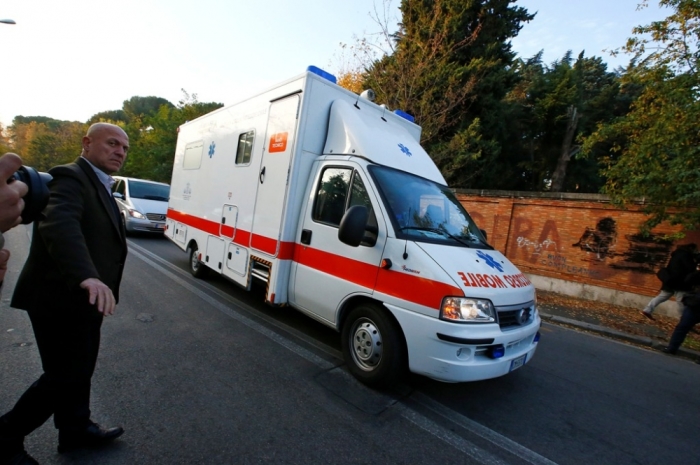Italy Confirms First Ebola Case; Crisis Splitting in Different Directions in West African Countries

Italy has confirmed its first Ebola case after a doctor contracted the deadly virus while treating patients in Sierra Leone. Ebola, which has killed over 15,300 people in West Africa, is splitting into different directions in the affected countries, with the situation getting worse in Sierra Leone, but vastly improving in Liberia.
"The procedures for transfer of the Italian doctor who is positive for Ebola do not present any risk to the community," Gianni Rezza, director of the Department of Infectious Disease at the Spallanzini clinic told the Corriere della Sera.
"We have been ready for this possibility and are already equipped to manage the situation. It is our moral duty to provide therapy and support to co nationals struck by Ebola: better here than in Sierra Leone. We can resolve this safely."
The Telegraph reported on Monday that the Italian doctor, who wasn't named, was flown back to Rome for treatment. Health officials have said that he is in stable condition, but has been isolated for treatment at the Lazzaro Spallanzani infectious diseases institute in the nation's capital.
Italy has 26 doctors working with charity group Emergency in Sierra Leone.
Spain also reported health workers that had come down with Ebola earlier this year, also due to treating infected patients in West African countries. The U.S. has experienced several cases as well, prompting authorities to institute Ebola-screening measures at major airports.
An American general leading medical troops who have been working in Liberia revealed that there has been significant progress in the fight against the virus in the country.
"It's a dramatic improvement," Brigadier General Frank Tate, deputy commanding general of U.S. Operation United Assistance, told Reuters.
"It was decided between USAID (U.S. Agency for International Development) and the Liberian government that two of the 17 Ebola Treatment Units was no longer necessary. They were canceled," he said.
Tate added that infection cases in the country have fallen from 80 to 20 a day in the space of a couple of months from when the operation began in September.
The situation remains grim in Sierra Leone, however, where new infection cases have been rising in recent weeks and have reached close to 100 a day.
BBC News reported that burial workers in the city of Kenema have began dumping bodies in public, protesting against the non-payment of allowances for handling Ebola victims. Workers have complained against the lack of support they've received from the government, and have gone on strike at the city's main hospital, leaving 15 bodies of Ebola victims abandoned.
The bodies were reportedly eventually taken away, but the health workers remain on strike.
The World Health Organization, which has been monitoring the outbreak, noted that a total of 588 healthcare workers are known to have been infected by the deadly virus, underlining the dangers of working in close quarters with the disease.
Guinea, the third West African country that has seen over 1,000 people die from the virus, has also reported that the outbreak is largely being contained within its territory.




























